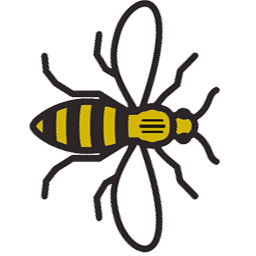| Plagiarism Policy | |
| Policy Ref | EPA.P.3 v21.2 |
| Date of Issue | 01/11/2021 |
| Next Scheduled Review | 01/08/2022 |
| Policy Owner | End-Point Assessment Delivery Manager |
| Contact email | epasupport@tquk.org |
| Contact Phone Number | 03333583344 |
| Approved By | Leadership Team |
| Policy Relates to: | End-Point Assessment Provision |
| Policy is for the use of: | Training Providers, Apprentices, TQUK Employees, Third Parties |
| Should be read in conjunction with: | |
| Relevant GCoR | A6, A7, A8, EPA1, EPA3 |
Introduction
This policy is provided for Training Providers and Apprentices involved in Apprenticeship standards for which Training Qualifications UK (TQUK) is the End-point Assessment Organisation (EPAO). It is also relevant to anyone involved in suspected or actual plagiarism. It is also to be used by TQUK staff members, to ensure they deal with any plagiarism investigations in a consistent manner.
This policy sets out the steps TQUK staff members will follow when reporting suspected or actual cases of plagiarism as well the procedural steps TQUK will follow when reviewing all such cases. Additionally it confirms when Training Providers are required to notify TQUK of suspected or actual plagiarism.
As part of the assessment process, ensuring a valid and rigorous approach to evidencing Apprentice achievements supports learning and success, and therefore it is paramount to robustly identify and confirm the authenticity of Apprentices work. The quality of assessment practice, including that of making grading decisions, is a vital procedure and the consistency of approach when dealing with potential plagiarism will improve quality and raise standards.
TQUK expects all staff to have relevant expertise to enable them to make fair and consistent grading decisions for all Apprentices when both assessing and moderating assessment decisions. This expectation extends to require continuous and active commitment from all staff engaged in TQUK activity linked to assessment to validate that Apprentice work is authentic and original and to take consistent action when plagiarism is suspected or reported.
TQUK Internal Responsibility
The End-Point Assessment Department (Delivery) is responsible for the maintenance and compliance of this policy. If the End-Point Assessment Delivery Manager is absent, the Responsible Officer will appoint another member of the Leadership Team to ensure all of TQUK’s actions and activities are in line with the content of this policy.
Review Arrangements
We will review the policy annually as part of our self-evaluation process and revise it as and when necessary in response to feedback from Training Providers or Apprentices. We may also update this policy as part of good practice guidance issued by External Quality Assurers (EQAs) or other regulatory authorities (e.g. to align with any processes established by the regulatory authorities such as Ofqual).
The annual review of this policy will be undertaken by the End-Point Assessment Department approximately four weeks prior to the submission of TQUK’s Statement of Compliance to Ofqual. Any amendments or updates to this policy will be approved by TQUK’s Leadership Team.
If you have any points or feedback regarding this policy, please contact us via the details provided at the start of this policy.
Training Provider’s Responsibility
It is important that a Training Provider’s staff involved in the management, assessment and quality assurance of our qualifications or standards for where we are the EPAO, and Apprentices, are fully aware of the contents of the policy and that they have arrangements in place to prevent and investigate instances of plagiarism.
If a Training Provider wishes to receive guidance/advice from TQUK on how to prevent, investigate, and deal with plagiarism then please contact us (details above) and we will happily provide advice and/or guidance as required.
Policy Statement
The aim of this policy is to ensure consistency and fairness when dealing with all real and suspected plagiarism. This policy aims to ensure:
- The assessment process is valid, rigorous and reliable
- All work submitted for assessment by an Apprentice is original to that Apprentice
- Apprentices are informed of this policy, or any such locally related policies held within individual Training Providers, and have an understanding of what plagiarism is and its relevance to them
- A fair and consistent approach when dealing with potential cases of plagiarism
- Support is provided to enable Apprentice success;
- The assessment process meets the requirements of regulatory bodies.
What is plagiarism?
Plagiarism is defined as an act of taking someone else’s work to submit or pass as your own and as such, TQUK will classify this as cheating under academic misconduct.
Examples of plagiarism include:
- Verbatim (word for word) quotation – copying another person’s (including another Apprentice) work with no reference or acknowledgment
- Cut/copy of material directly from a website/text book etc. without reference or acknowledgement
- Paraphrasing (altering a few words of another to pass as your own) from books, website or another individuals work
- Collusion – unauthorised collaboration between Apprentices which unfairly assist an Apprentice to produce work which is not purely their own
- Employment/engagement of another person, professional or other, to produce work on your behalf.
Why does plagiarism happen?
Plagiarism is not always intentional, and can often occur through unintentional means, whereby an Apprentice has attempted but failed to correctly cite or reference another person’s work or text. Where it is clear that such efforts have not been made and work is identical to or indicates small changes have been made to disguise the copying of another person’s work it is classed as intentional. Plagiarism can be prevented by providing a reference which attributes the work to the correct source, regardless of the form that this work takes.
The list below contains common reasons, both intentional and unintentional, for plagiarism.
Unintentional reasons:
- Poor understanding of the definition of plagiarism and the rules associated with it
- Incorrect citation or referencing of another person’s work caused from a misunderstanding of the correct process
- Insufficient time is given to the completion of a task/ assignment causing mistakes to be made in relation to referencing
- Adopting previous incorrect practice that had been accepted
- Over-reliance on the original source material
- Compensating for poor English language skills
- Being unable to distinguish between intellectual property rights and common knowledge
- Lacking effective study or research skills;
- Failure to determine the difference between class/ group work and individual assessment work.
Intentional reasons:
- Ignorance relating to plagiarism or the belief that they will not be caught
- Not believing that plagiarism is wrong
- No value of academic regulation
- Regarding plagiarism as a shortcut to success
- Intentional cheating and passing off of another’s work for own ends.
The vast majority of plagiarism instances occur through unintentional means, however it must still be deemed as a serious act of academic misconduct and swift action taken. Apprentices must be held accountable for ensuring they have met all outlined requirements in relation to citation and referencing and they are submitting work that is their own.
How is plagiarism identified?
Whilst assessors employ various safeguarding strategies to prevent plagiarism there are a number of indicators that may alert an assessor or IQA to potential plagiarism which include:
- Apprentice work produced to a surprisingly higher quality than previous submissions
- Writing styles differing to those previously demonstrated
- Assignments that contain unfamiliar words, terminology or Americanised spelling
- Distinct lack of comprehension of their written work when asked about the subject matter
- Use of texts familiar to the assessor but not referenced
- Differences in the level of performance between assignments and activity completed under uncontrolled conditions.
TQUK procedure for dealing with suspected plagiarism
Where plagiarism is suspected, the following steps should be carried out in a discrete and professional manner. The assessor should address their concerns with the Apprentice by asking them questions in relation to the authenticity of their work. This may include knowledge based questions to confirm the Apprentice’s comprehension, or reviewing relevant partially or attempted referenced materials. Additionally generic reviews of search engines or familiar text books/source materials may be carried out.
Unintentional Plagiarism
During the course of such investigation, if it is deemed that plagiarism has taken place but is classified as unintentional then the assessor can refer the work back to the Apprentice for revision.
TQUK will inform the relevant Training Provider who should seek to provide adequate support to prevent further instances of plagiarism, prior to revised and or additional work being submitted for assessment.
All such instances should be recorded by both TQUK and the Training Provider.
Intentional Plagiarism
However if the investigation results in a finding of intentional plagiarism, then the work should not be accepted for assessment.
In such instances TQUK will inform both the Apprentice and the Training Provider/Employer and refer them back to the Training Providers own disciplinary policy for further action.
All such instances should be recorded by both TQUK and the Training Provider/Employer.
Apprentices retain their right to appeal decisions made by TQUK in relation to plagiarism. All such appeals should be directed to the Quality and Compliance Department, who will conduct a further review of the evidence with a view to either support the assessors finding and decision or overturn the decision and by such re-instate the Apprentice’s right to assessment. For guidance on the appeals process please refer to the TQUK Appeals Policy.
Training Provider procedure for making an allegation of plagiarism to TQUK
Training Providers in the first instance should refer to their own internal policy for dealing with plagiarism. Where investigations result in intentional plagiarism and refer to any Apprentice that may have been certificated by TQUK or completed an Apprenticeship standard assessment with TQUK as the EPAO the Training Provider should immediately notify TQUK. Training Providers should put their concerns in writing/email and enclose appropriate supporting evidence.
All allegations must include (where possible):
- Training Provider name, address and number
- Apprentice’s name and TQUK registration number
- Training Provider/TQUK personnel’s details (name, job role) if they are involved in the case
- details of the Apprenticeship end-point assessment affected
- nature of the suspected or actual plagiarism
- details and outcome of any initial investigation carried out by the Training Provider or anybody else involved in the case, including any mitigating circumstances.
If a Training Provider has conducted an initial investigation prior to formally notifying TQUK, the Training Provider should ensure that staff involved in the initial investigation are competent and have no personal interest in the outcome of the investigation. TQUK would expect that such investigations would normally involve the Training Provider contact/Training Provider manager.
It is important to note that in all instances the Training Provider must immediately notify TQUK if they suspect plagiarism has occurred and certificates have been issued/assessment components passed as we have a responsibility to the regulatory authorities to ensure that all investigations are carried out rigorously and effectively.
For any reported case of suspected plagiarism, TQUK will protect the identity of the ‘informant’ in accordance with our duty of confidentiality and/or any other legal duty.








